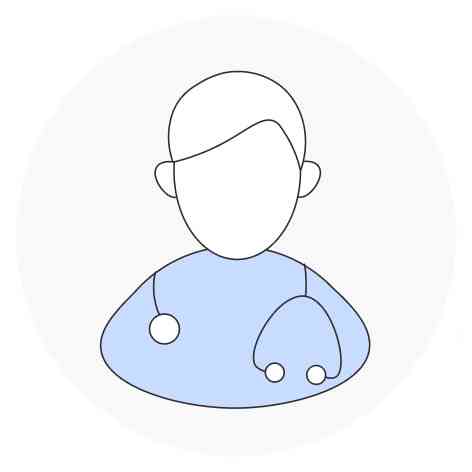Gallstones
Discover advanced Gallstones surgery solutions to relieve pain and restore comfort. Our expert team specializes in minimally invasive procedures, ensuring effective treatment for corns and related foot conditions to improve your quality of life.

30k+
Surgeries Done
50k+
Departments Treated
150k+
Conditions Treated
3k+
Specialist Doctors
200+
Cities
Gallstones Introduction
Gallstones, also referred to as gallbladder stones, are solid particles that develop within the gallbladder as a result of the hardening of digestive fluids. These formations can vary in size, ranging from as small as a grain of sand to as large as a golf ball. In many cases, gallstones do not present any noticeable symptoms until they lead to discomfort or complications.




Why MediBuddy For Health Care

Enhanced Quality of Care
Constant support, a network of premium hospitals and top-tier surgeons.

End-to-End Management
Your only focus should be to go and get your procedure done. Leave the rest to us.

Continuous Guidance
Any problem you may face resolved with one phone call.

Easy financing support
We bring you the best deals, EMI options without compromising on quality
Meet Our Doctors

Dr Vihrut Bharti
Opthalmology
8 years Experience

Dr Vihrut Bharti
Opthalmology
8 years Experience

Dr Vihrut Bharti
Opthalmology
8 years Experience
Types Of Gallstones
Gallstones are classified into two main types based on their composition: cholesterol stones and pigment stones. - Cholesterol stones: These are typically yellow-green in color and are primarily composed of undissolved cholesterol. They are the most common type of gallstones, accounting for about 80% of cases. Factors that contribute to the formation of cholesterol stones include high levels of cholesterol in the bile, decreased motility of the gallbladder, and certain medical conditions such as obesity and rapid weight loss. - Pigment stones: These stones are characterized by their brown or black color and are primarily composed of bilirubin, a waste product formed when the liver breaks down old red blood cells. Pigment stones are less common than cholesterol stones, making up about 20% of cases. Risk factors for pigment stones include liver cirrhosis, blood disorders, and infections in the biliary tract.
Diagnosis And Tests For Gallstones
Diagnosis of gallstones typically begins with identifying symptoms that may indicate their presence. Common symptoms to watch out for include sudden and escalating pain in the upper right abdomen, discomfort between the shoulder blades, as well as feelings of nausea and vomiting. Upon experiencing these symptoms, it is crucial to seek medical evaluation promptly. Medical professionals may recommend a series of diagnostic tests to confirm the presence of gallstones and assess the extent of the condition. These tests commonly include: - Ultrasound: A non-invasive imaging test that uses sound waves to create a visual of the gallbladder. It is frequently utilized to identify the presence of gallstones and evaluate the overall health of the gallbladder. - CT Scan: Computed tomography (CT) scan provides detailed cross-sectional images of the internal organs, including the gallbladder. This imaging test can help in detecting gallstones and any potential complications associated with them. - HIDA Scan: Also known as a hepatobiliary iminodiacetic acid scan, this test involves injecting a radioactive tracer that allows visualization of the bile flow and gallbladder function. It can aid in diagnosing gallbladder issues such as gallstones and assessing the functionality of the gallbladder. These diagnostic procedures are essential in accurately diagnosing gallstones and developing an appropriate treatment plan tailored to the individual's condition. If symptoms suggestive of gallstones are present, seeking medical advice and undergoing the recommended tests promptly is crucial for effective management.
Treatment Options For Gallstones
Treatment options for Gallstones can vary depending on the severity of symptoms and the individual's overall health condition. Here are some common treatment options that may be recommended: - Watchful waiting: In cases where the gallstones are not causing any symptoms, a "wait and see" approach may be advised. Regular monitoring through check-ups and ultrasound scans may be recommended to track any changes. - Medications: Certain medications, such as oral bile acid pills, may be prescribed to help dissolve gallstones. However, this process can be slow and may not be effective for everyone. - Gallbladder removal (Cholecystectomy): If gallstones are causing recurrent pain, inflammation, or other complications, surgery to remove the gallbladder may be recommended. This procedure is usually done laparoscopically and is considered a safe and effective treatment for gallstones. - Endoscopic retrograde cholangiopancreatography (ERCP): In some cases, a procedure called ERCP may be performed to remove gallstones from the bile ducts. This involves using an endoscope to locate and extract the stones. - Shock wave lithotripsy: This non-invasive procedure uses shock waves to break gallstones into smaller pieces, making them easier to pass through the bile ducts. It is typically used for smaller gallstones. - Lifestyle changes: Making dietary modifications, such as reducing the intake of fatty foods, and maintaining a healthy weight can help prevent the formation of gallstones and reduce the risk of complications. It is important to consult with a healthcare provider to determine the most appropriate treatment option based on individual circumstances and medical history.
Medications For Gallstones
Medications for Gallstones: Gallstones are typically treated through surgical procedures such as cholecystectomy (removal of the gallbladder) rather than medications. However, in certain cases, medications may be prescribed to help dissolve gallstones or manage symptoms associated with gallstones. Medications that may be used in the treatment of gallstones include: 1. Ursodiol (Actigall): Ursodiol is a medication that can help to dissolve cholesterol gallstones by reducing the amount of cholesterol produced by the liver. It may be prescribed for individuals who are not good candidates for surgery or for those who prefer a non-invasive treatment option. 2. Chenodiol (Chenix): Similar to ursodiol, chenodiol is another medication that may be used to dissolve cholesterol gallstones. It works by decreasing the production of cholesterol in the liver, which can help to break down existing gallstones. 3. Oral dissolution therapy: This treatment involves taking medications orally to help dissolve gallstones over a period of months. While not always effective for all types of gallstones, it may be an option for some individuals who wish to avoid surgery. It is important to consult with a healthcare provider to determine the most appropriate treatment plan for gallstones, as medications may not be suitable for all cases.
FAQ
What are gallstones?
Gallstones, also known as gallbladder stones, are solid particles that form within the gallbladder due to the hardening of digestive fluids.
What are the types of gallstones based on composition?
What are the common symptoms of gallstones?
What diagnostic tests are used to confirm the presence of gallstones?
What are the treatment options for gallstones?